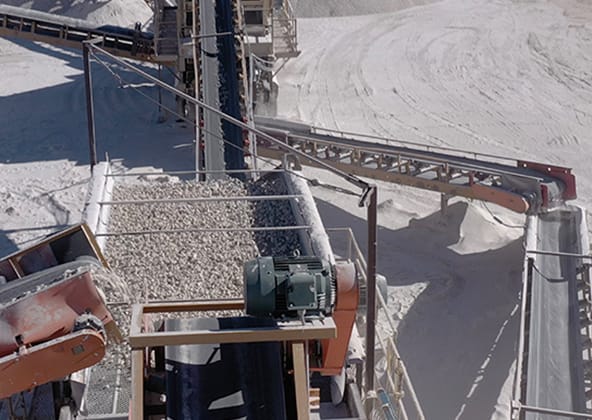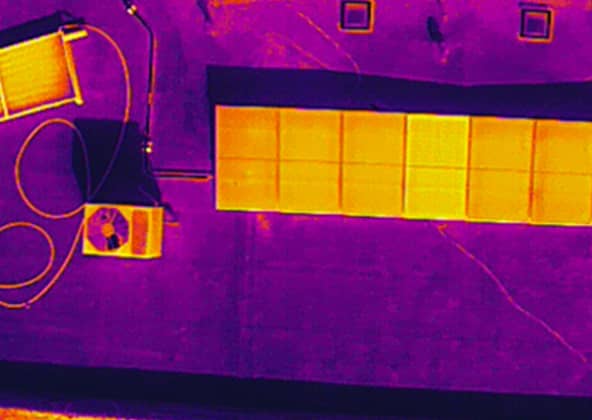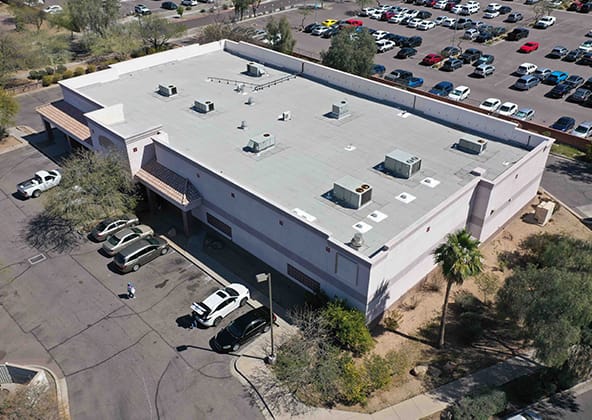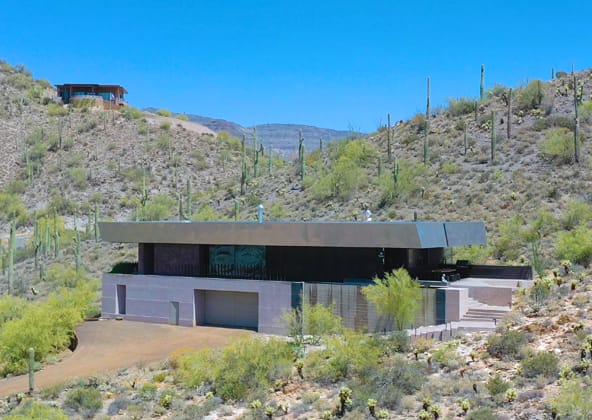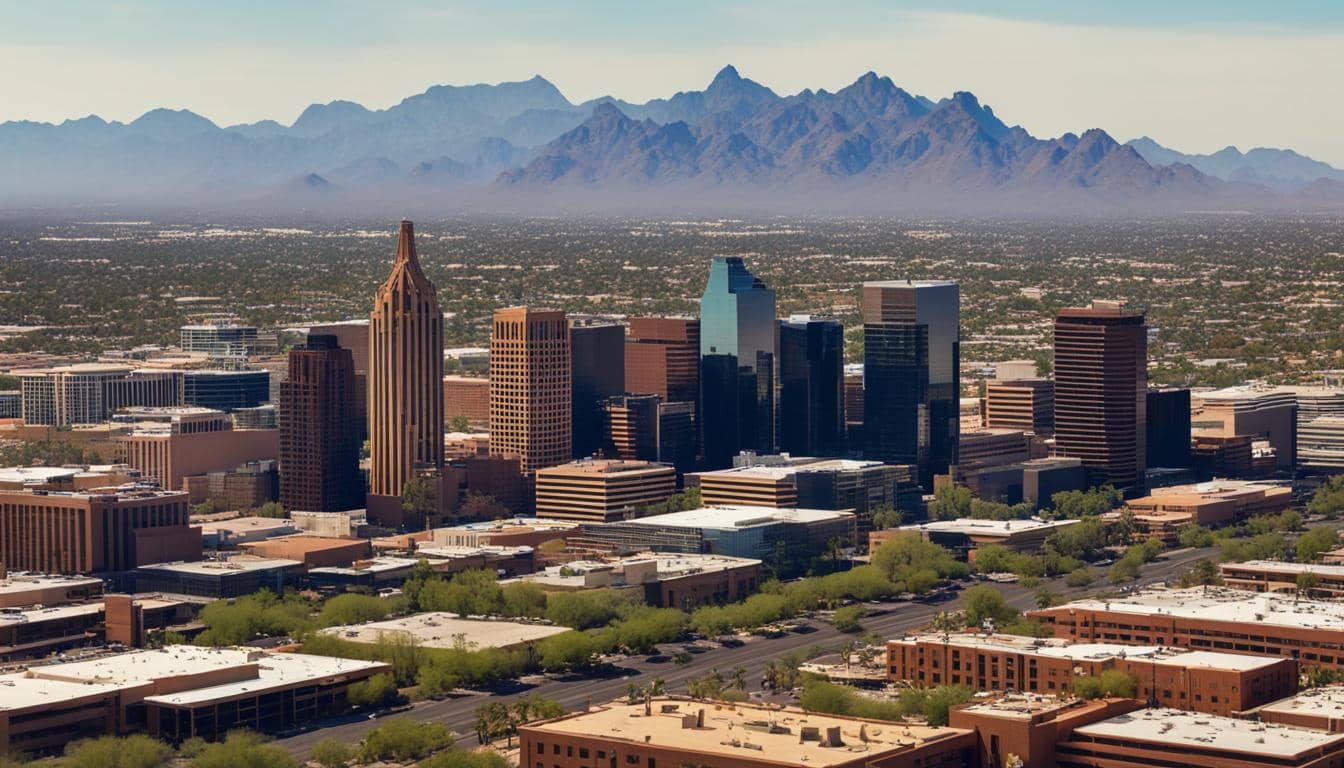
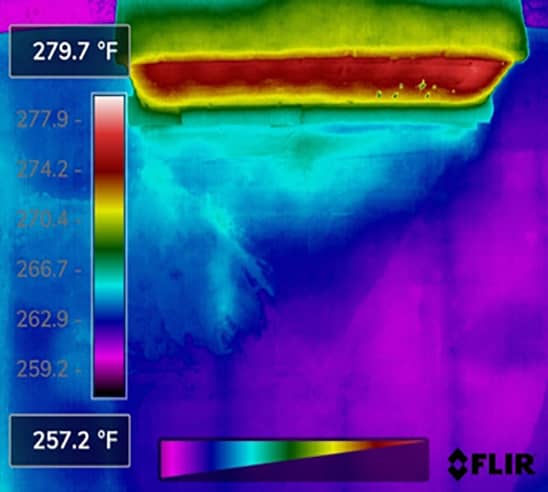
Roofs are an essential component of every construction. They support the structure, act as insulation, and block the elements. But a roof must be routinely inspected to make sure it remains in good shape.
Cue the drones. They are often referred to as unmanned aerial vehicles (UAVs), and they have extremely precise radiometric thermal sensors that can identify all kinds of roof problems. A thermal roof assessment keeps large flat business rooftops in top shape, whether it’s a warehouse or a school.
This post will define thermal drone roof inspections and outline their five main advantages for site management.
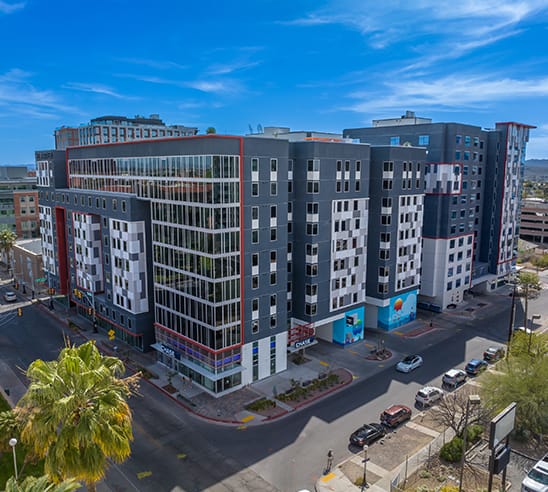
Thermal drone roof inspections search for anomalies and roof issues. It also serves as a benchmark survey for regular maintenance, though. For example, it can confirm that a roof was restored or installed correctly.
No matter how old your roof is, a thermal analysis will ensure everything is fine. Drones equipped with infrared (IR) sensors can quickly scan a large roof. The thermal photos are then processed by state-of-the-art drone software to create accurate thermal maps and models. These provide you with an accurate image of the condition of the roof and any potential issues that need your attention.
Traditional roof inspections are dangerous. They usually lead to mishaps, slips from moving surfaces, and falls while climbing tall ladders. Even the possibility of a roof collapsing, being electrocuted, or becoming imprisoned can occasionally be a concern. In truth, roofers experience work-related fatalities at a rate that is more than ten times greater than the national average.
Thankfully, drones significantly raise the level of safety for roof inspections. The drone operator can cover large roofs while working from a safe location. Without putting anyone in danger, they can obtain all the information they need and more.
You can lower the likelihood of additional roof failures by doing routine drone inspections. Keeps a building in good condition and the environment safe through early detection of roof issues.
Thermal roof assessments conducted by manned aircraft yield fewer and poorer-quality data. This is because they have to fly at high altitudes, which results in photographs with low resolution. Additionally, accuracy declines as resolution does.
Drones, on the other hand, can fly a lot closer to the roof and capture high-resolution thermographic photos. They may also access locations that are more challenging for people and larger planes to travel to. They can produce additional information that is helpful for reporting and fixing as a result.
The following issues can be discovered during a thermal drone roof assessment, among others:
These frequently develop from fractures or breaches in the roof where heat is escaping and can waste a lot of energy.
There shouldn’t be any water buildup on the roof. If you do, it may indicate that a gutter or drain is blocked or that there is a low area.
As the weather changes, roofing materials will swell and contract. As a result, the roof can have cracks or other issues.
Air pockets that form in the roof give rise to roof blisters, which are frequently triggered by heat. This can be a sign of poor airflow or a manufacturing error.
The advantage of drone thermography is that it is quite accurate. To begin with, infrared data might record fine details. Because they may be programmed to fly repetitive routes that repeatedly take the same pictures from the same viewpoints, drones are considerably more likely to observe changes over time. This offers a level of accuracy that is simply not possible with regular tests.
Finally, having more precise data on the building’s value makes it easier to finance real estate transactions as well as responsibilities like record keeping, preventative maintenance, and repairs.
Drone-based inspections are quite efficient. They reduce inspection times by eliminating the need to transport, assemble, and set up a lot of heavy access equipment like ladders and scaffolding. It often takes less than an hour to do the actual investigation (collecting drone data). This effectiveness is enhanced by the capability to pre-plan flight paths for autonomous flights. An operator of a drone can mark the perimeter of a roof and then recharge while the drone completes the strenuous task.
Naturally, speedier inspections save more money overall. One advantage is that you don’t need to hire as many workers to complete the same number of man-hours. Drones can do the operation in a fraction of the time with just one or two operators. It also means that you won’t need to worry about insuring as many employees or pieces of equipment against liability. Additionally, renting drone equipment is significantly less expensive than renting manned aircraft, such as helicopters, which cost thousands of dollars per day.
Long-term, regular drone inspections will help you identify and stop more roof problems. They are a non-intrusive way to inspect roofs and get the most out of your building care money.
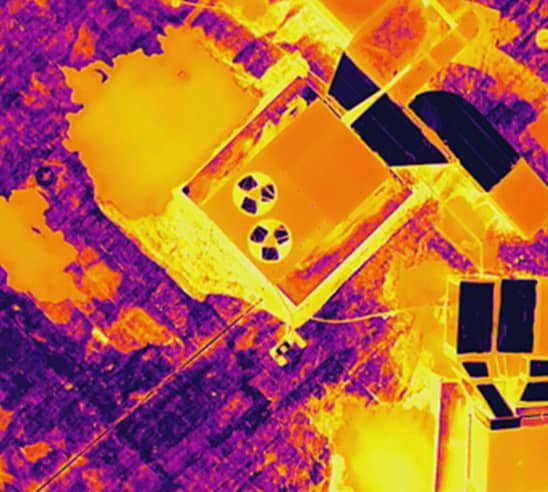
Most roofs come with a warranty. The typical manufacturer’s guarantee for roofing is from 10 to 25 years, and installation work is covered for up to 2 years. Depending on the warranty, they will cover anything from roof leaks to hail and heavy wind damage to holes in the roof. However, you must carefully analyze the warranty’s specific terms to determine what it will cover.
Utilize a drone thermal inspection to detect problems that are covered by the warranty to get the most out of it. The likelihood that the warranty will expire before you can make use of it grows if you wait too long and let roof defects get worse.

